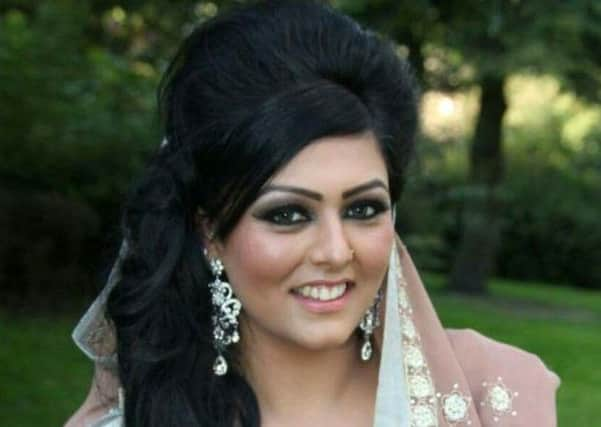'˜Lessons to be learned to end honour crimes abuse'


Reports of honour-based abuse have risen four-fold in parts of the region since 2015, police figures reveal, with reports of forced marriages in West Yorkshire trebling in this time.
Leading charities, revealing they have seen a 40 per cent rise in calls for help in the county in the past year, say this is as a result of massive steps being taken by agencies such as police being prepared to tackle the issues.
Advertisement
Hide AdAdvertisement
Hide AdNow, with Bradford West MP Naz Shah having received death threats in the weeks after forcing an investigation into the murder of 28-year-old Ms Shahid, she says conversations must be had within communities to “root out” beliefs that such crimes are ever acceptable.
“There’s no room for this in our society,” she said. “It does happen. And any one death is one too many. A single forced marriage is one too many. These are conversations we need to have within communities. We must talk about good relationships.”
Ms Shahid had been visiting family in Pakistan in July 2016 when she was found dead of what were said to be natural causes, and buried the same day in Pandori. But her second husband, Syed Mukhtar Kazam, publicly accused her family of killing her after opposing her divorce and subsequent marriage to him, and a fresh inquiry was ordered by the Pakistan government after Ms Shah wrote to prime minister Nawaz Sharif.
“I knew that she had been murdered,” said Ms Shah. “I had no doubt about it. The shocking thing is that this is still happening in our community,” she added. “It’s something we need to root out – the majority of the community absolutely condemn it.”
Advertisement
Hide AdAdvertisement
Hide AdMs Shahid’s husband claimed she was killed for marrying an ‘outsider’ against her parents’ wishes.
They had married in September 2014 after she left her first husband, who was a cousin from Pakistan.
Mr Kazam said his wife, described as “happy and bubbly”, moved to live with him in Dubai but had gone to Pakistan against advice after being told a family member was ill. Her killing, police later said, was “premeditated, cold-blooded murder”.
An investigation concluded that her former husband, now awaiting trial, raped her as her father stood guard before they both strangled her.
Her father was later released, and has since died.
Advertisement
Hide AdAdvertisement
Hide AdMr Shahid had previously denied all charges, telling reporters outside court that he loved his daughter too much. The allegations against him and his former son-in-law, he had said, were a “pack of lies”.
Ms Shah, who has been personally threatened after raising Ms Shahir’s case, said it was never a question of ‘why’ she should fight for an investigation – but of ‘why do we not’.
“I had police ringing me up, asking where I was,” she said. “They had intercepted threats from people wanting to shoot and kill me. This was just six weeks after Jo Cox was shot.
“There’s a rumour in the community that I have a hit on my head. Lots of people have warned me that I will pay for what I did. But murder is murder.”
Advertisement
Hide AdAdvertisement
Hide AdMs Shahir’s ex-husband Mohammad Shakeel is held in prison in Pakistan, and Ms Shah has said she is to write to the Home Secretary seeking an update on the case.
“We have got to keep this investigation alive,” she said. “Every person has a right to live a life free of fear, across all cultures. These crimes are crimes of control, driven by shame.
“People have the right to live how they want to live. Nobody has the right to use fear to control that.”
Honour crime and forced marriage has been the focus of a recent pledge by partners in West Yorkshire. This, says charity Karma Nirvana, is having an impact with support workers seeing a 40 per cent rise in calls in the past year, but more must still be done.
Advertisement
Hide AdAdvertisement
Hide Ad“We are years behind domestic abuse in terms of understanding,” said Natasha Rattu from the charity.
“Nationally, we still see a lot of professionals that don’t have the confidence to deal with it. Samia’s case is one, unfortunately, that we have heard time and again. There are certainly lessons that could be learned. We need to reflect on what happened to prevent it from happening again.”